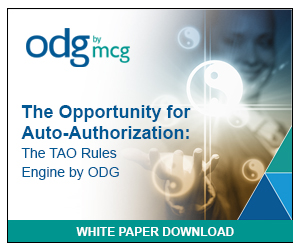Industry Insights
January 19, 2018
Are Injuries Sustained While Driving From AME Exam Compensable?
- State: California
- - 2 shares
Minarik v. Del Taco is a somewhat recent panel decision, and now writ-denied claim, in which a workers' compensation judge and the Workers' Compensation Appeals Board held that injuries sustained en route to an agreed medical evaluator exam on an accepted case were compensable consequences of an underlying injury.
Applicant Minarik was involved in a motor vehicle accident on her way back from an AME appointment for an admitted injury. She claimed he injuries sustained as a result of her MVA to be a compensable consequence of her industrial claim, which the defendant naturally disputed.
Defendant relied on Rodriguez v. WCAB, a 1994 Court of Appeal decision that held that injuries sustained from the litigation process were not compensable consequences. In Rodriguez, applicant claimed a compensable consequence psyche injury as a result of the termination of vocational rehabilitation benefits, which the Court of Appeal rejected in that the litigation process is not arising out of employment/course of employment.
On a personal note, I, as a brave, courageous and very modest workers’ compensation defense attorney, can attest that the workers’ comp litigation process does give rise to psychiatric injury — at least to the attorneys involved. How often does a father see his child scrape his knee on the playground and involuntarily mutter something like “non-industrial” or “off-duty recreational activity”?
The defendant also relied on the panel decision in Evans v. San Joaquin Regional Transit District, a 2014 panel decision in which the commissioners rejected applicant’s argument that injuries arising out of an MVA that occurred en route to medical-legal appointment because the medical-legal exam was part of the litigation process for a contested claim.
Well, neither of these cases seemed persuasive to the WCJ or the WCAB commissioners in Minarik. The WCJ reasoned that because Minarik involved an accepted claim, the medical-legal appointment was more akin to the medical (as in, medical treatment) rather than to the legal (as in, litigation process).
Relying instead on Laines v. WCAB, where in 1975 the Court of Appeal held that injuries sustained en route to medical treatment are compensable, the WCJ distinguished Rodriguez because the compensable consequence injury in that case was psychiatric, whereas in Minarik, the injury claimed was orthopedic. The WCAB further distinguished the Evans panel case because that case was denied, while the Minarik claim was already accepted.
Naturally, your humble blogger does not like this result. If we draw a distinction, as the WCAB panel appears to do, between a medical-legal exam to determine AOE/COE and one to determine the extent of permanent disability or the need for further medical treatment, does that mean injuries sustained en route to the WCAB for a hearing should also be held compensable?
If applicant is claiming an entitlement to temporary total disability benefits and is in an MVA on the way to an expedited hearing, should the defendant be liable because the “litigation process” is limited only to AOE/COE determinations and not to nature and extent of benefits owed? Should applicants be able to claim a cumulative trauma from all the driving they’ve done to their medical appointments?
Members of the defense community, especially those who have been around through more than one reform, tend to comment with some frustration that the scope of employers’ and insurers’ obligations continues to grow.
The one silver lining from this — and it is so thin you have to squint to see it — is that perhaps defendants can use this case to bolster control of medical treatment. Sometimes applicants challenge the validity of a medical provider network because there is an insufficient number of doctors within the 30-mile mark of the applicant’s residence or employment site. However, other times, applicants seek to treat with physicians 40 or 50 miles away when there are plenty of physicians much closer.
The potential for exposure for injuries sustained en route to these far-off treatment locations presents an argument for denying primary treatment provider requests for far-away physicians.
Gregory Grinberg is workers' compensation defense attorney at the Law Office of Gregory Grinberg, based in the San Francisco Bay Area. This post is reprinted with permission from Grinberg's WCDefenseCA blog.
Advertisements
Columns
- Montgomery: Comp Is a Cash Cow, but Insurers Want Higher Rates 05/21/25
- Snyder: Credible Negotiation 05/19/25
- Paduda: The State of Work Comp 05/16/25
- Snyder: Two Opposing Views on Litigation Management 05/14/25
- Montgomery: City Pays Doctor $32 to Treat Injured Employee 05/12/25
- Gelman: Medical Reports Matter 05/09/25
- Montgomery: Rand Gets $300K for UR Study. What's the ROI? 05/05/25
- Salem: Respondent Who Is Not Employer May Not Owe Filing Fee 05/02/25
- Gelman: When Credibility Crumbles 04/30/25
- Montgomery: More States Move to Expand Workers' Comp PTSD Coverage 04/28/25
- Gelman: The Toll of Neglect 04/25/25
- CAAA: Fraud in the Workers' Comp System 04/23/25
- Gelman: Broken Medical Promises 04/21/25
- Langham: Never Give Up, Never Surrender 04/18/25
- CAAA: The Dismantling of NIOSH 04/16/25
- Ahmed: Strategies for Successful Negotiation 04/14/25
- Shabestari: Addressing Venue in Work Comp Claims 04/11/25
- Snyder: Do You Trust Your Mediator? 04/09/25
- Gelman: Beyond the Knife for Back Pain Relief 04/04/25
- Montgomery: Changes to Workers' Comp DME Authorization 04/02/25
Now Trending
- Workers' Compensation News
-
Calif. Failure to
List Exhibits on Conference
Statement Not a Harmless…
Posted on May 20, 2025
-
Calif. WCAB Says
Judge Exceeded Authority in
Ordering Replacement…
Posted on May 21, 2025
-
Calif. WCIRB
Projects Highest Combined Ratio in
14…
Posted on May 15, 2025
-
Calif. Committee
Passes State Hospital Heart Trouble
Presumption Bill, Sends…
Posted on May 16, 2025
-
Calif. Prosecutors
Lay 15 Felonies on Ex-Cop Suspected
of…
Posted on May 21, 2025
-
Calif. Court Says
Tribal Immunity Extends to Health
Care…
Posted on May 22, 2025
-
Calif. Security
Company Owner Sentenced in $3.4M
Comp Fraud…
Posted on May 21, 2025
-
Fla. WCRI Reports
Cost Trends Mostly Linked to…
Posted on May 15, 2025
-
Colo. Provider
Choice Bill Heads to…
Posted on May 19, 2025
-
Conn. Governor
Signs Bill Responding to Gardner…
Posted on May 22, 2025
Jobs
Upcoming Events
Jun 11-13, 2025
CCWC 2025 Educational Conferen
For two decades, CCWC has assembled the key players in the workers’ compensation arena for what is …
Sep 2-4, 2025
San Diego Elevate Workers' Com
We are thrilled to announce that Early Bird registration is OPEN for ELEVATE® 2025! This year's …
Social Media Links
c/o Business Insurance Holdings, Inc.
Greenwich, CT 06836




No Comments
Log in to post a comment